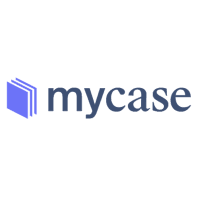Law Practice Management Suites
What is Law Practice Management Suites?
Top Products in Law Practice Management Suites
What features do law practice management suites include?
Law practice management suites are all-in-one platforms that offer a variety of tools for handling the most common tasks involved in running a law firm. Typically, these suites come packaged with tools for managing cases, contacts, calendars, documents, timekeeping, and billing. They may also include features such as accounting and electronic payments.
Why should I use a law practice management suite?
Used properly, law practice management software is both a boon to efficiency and a hedge against malpractice.
Law practice management software promotes efficiency by allowing you to keep all your clients and matters organized within a single system, so you do not lose track of documents or deadlines and can easily see the status of your matters.
Law practice management software helps prevent errors and potential malpractice by keeping all critical case information at your fingertips. Some suites enable you to create workflows and set automatic reminders to help ensure you stay on top of matters.
Should I choose a law practice management suite that is cloud-based or on-premises?
Most law firms will be better suited with a cloud-based law practice management suite. That said, when choosing a law practice management suite, you have several options to consider. The most significant difference among products is that some are cloud-based and some must be installed on-premises within your firm, such as on a server or computer.
Until 2009, all practice management software was on-premises. That year, two companies separately introduced cloud-based practice management software, Clio and Rocket Matter. Since then, virtually all new practice management suites that have come to the market have been cloud-based.
Cloud-based software has several advantages over on-premises software. It can be used from anywhere and on any device. It requires no special hardware or capital expense to get started. Updates to the software are automatic and seamless. And as your firm grows, it takes just moments to add new users.
The advantage of on-premises software over cloud software is primarily one of security and control. Some firms prefer to keep all their data and IT infrastructure inhouse. But that also requires that the firm install inhouse server software, obtain all the required software licenses, perform system updates and maintenance, and employ IT staff or consultants.
Should I select an all-in-one, or an a-la-carte law practice management suite platform?
Whether an all-in-one or a-la-carte platform is right for your firm will depend on the tools you need for that practice, as well as the licensing cost of the software or SaaS subscription. If you need all of the features of an all-in-one law practice management platform, then it is likely to be more cost-effective and better integrated than buying a-la-carte services to perform the same functions. But if you do not need most of the features of an all-in-one platform, or need a more focused practice-specific solution, then the a-law-carte option may be more cost-efficient or better suited to your practice. When it comes to choosing practice management software, there is no single product that is the best fit for every firm.
An all-in-one practice management suite is designed to be a comprehensive platform for managing a law firm. It will include a full selection of practice management tools, with some even including robust accounting. In addition to the convenience of having everything in one platform, all-in-one suites are usually more economical, combining multiple features under a single subscription or license.
By comparison, a-la-carte suites start with the core features a firm needs in a practice management platform – matter management, contacts management, calendaring and task management, time and billing, and document management – but then allow a firm to add additional functionality through integrations with third-party partners.
What should I expect to pay for a law practice management suite?
For a law practice management suite, you should expect to pay hundreds, if not thousands per year, in subscription or licensing fees. The actual price you pay for a law practice management suite will depend in the first instance on whether it is cloud-based or on-premises. Cloud platforms charge a per-person monthly subscription fee. On-premises platforms charge a licensing fee, either on a one-time basis or annually.
Keep in mind that the price you pay for an all-in-one suite generally covers everything, while an a-la-carte suite may require separate subscriptions for third-party integrations.



